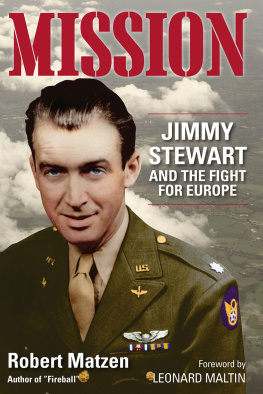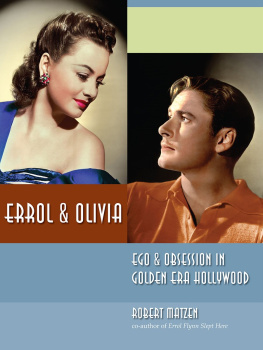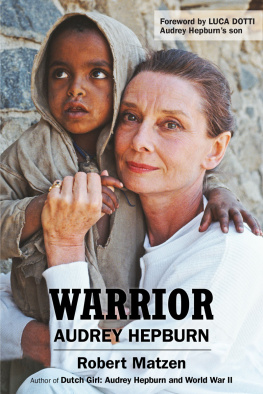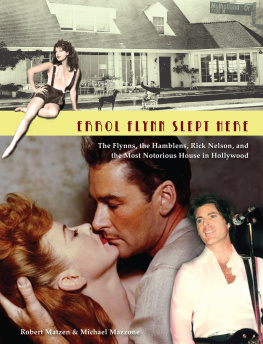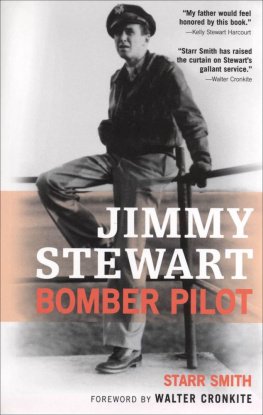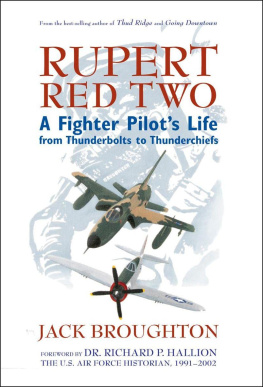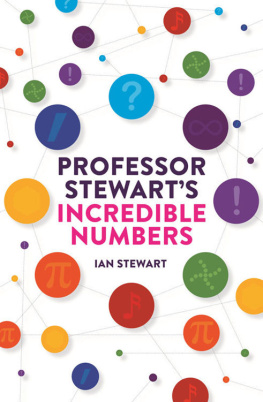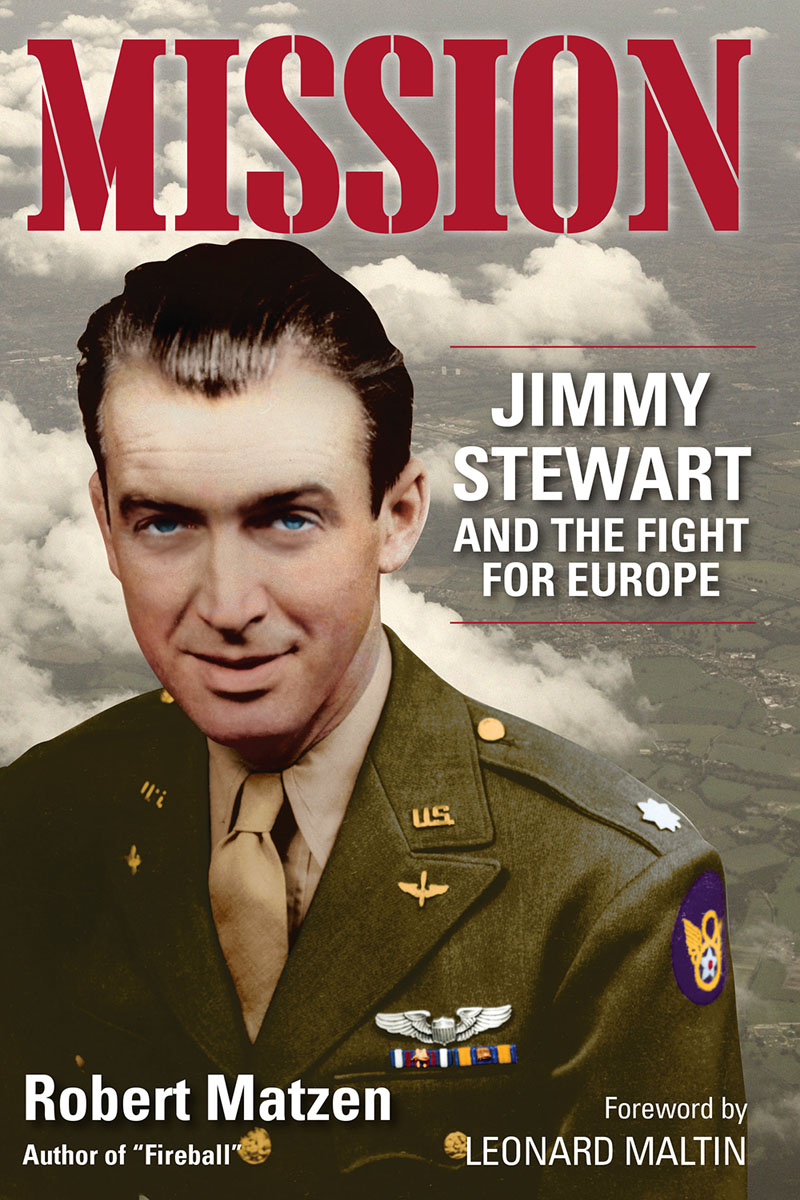
Praise for MISSION
A truly excellent in-all-aspects account of Jimmy Stewarts life and film careerincluding previously untold accounts of his World War II experiences as an Army Air Corps Flight Commander in Europe. Author Robert Matzen has done it, and done it well.
Rudy Behlmer, author of David O. Selznick, Inside Warner Bros., and others
Mission digs deep into the untold true story of how a Hollywood ladies man fought hard to fly bombers in World War IIand paints a vivid picture of how James Stewarts often horrific experiences in the air informed his remarkable post-war career.
Lou Lumenick, Film Editor and Chief Film Critic at the New York Post
As Jimmy Stewarts children, we have always known that our fathers service during the war was the most significant event of his life, although he rarely spoke of it. This book gives us the best glimpse we will ever have of what that experience was like for him and the men he flew with. Thank you, Robert Matzen.
Kelly Stewart, daughter of Jimmy Stewart
GoodKnight Books
2016 by Robert Matzen
Foreword 2016 by Leonard Maltin
All rights reserved. No part of this book may be reproduced or transmitted in any form or by any means, electronic or mechanical, including photocopying, or by an information storage and retrieval system without permission in writing from the publisher.
Published by GoodKnight Books, an imprint of Paladin Communications, Pittsburgh, Pennsylvania
Printed in the United States of America
Library of Congress Control Number: 2016946209
ISBN 978-0-9962740-5-0
ISBN 978-0-9962740-6-7
ISBN 978-0-9962740-7-4
ISBN 978-0-9962740-8-1
Book and cover design by Sharon Berk
Colorization by Tom Maroudas

To Jim Stewart, Clem Leone, Bill Minor, Barry Shillito, and all the other fliers of the 445th Bomb Group (H), and to the men on the ground who worked all night to get the Liberators ready for another mission.
CONTENTS
FOREWORD
Ask anyone to describe James Stewart and theyre likely to recall a genial man with an aw, shucks manner. This is the public persona he cultivated and, being a canny showman, he seldom broke character, whether being interviewed by Johnny Carson on The Tonight Show or promoting one of his older films release on home video, as he did for Harvey and The Glenn Miller Story, among others. He seemed so down-to-earth that fans who had never met him referred to him as Jimmy, not James.
No one Ive ever spoken to cites the hard-bitten Stewart that audiences of the 1950s came to know in such films as Winchester 73, The Naked Spur, and Bend of the River. Even Alfred Hitchcocks Vertigo isnt thought of as a typical or emblematic Stewart role, although the film is widely revered. It was the darkest character the actor ever played. Moviegoers accepted him in all these guises, yet in the public consciousness they were eclipsed by Stewarts winning personalityand the memory of such enduring movies as Mr. Smith Goes to Washington and Destry Rides Again.
Yet, as we learn in Robert Matzens compelling narrative, those intense characters he essayed speak not only to the actors versatility but to the aftermath of his sobering, often shattering, experiences during World War II.
Nowhere is this clearer than in the first movie he made following his years of service overseas. Its a Wonderful Life was a challenging project for him and his director, Frank Capra. Both of them had been reshaped by the war and were understandably nervous about resuming their careers. It is fitting that Matzen bookends his story by describing Stewarts return to the world of make-believe that this job represented in 1946.
This is not to say that he was a one-trick pony in the 1930s and early 40s. His earnestness was his stock-in-trade, but he reveals a comedic cynicism in The Shop Around the Corner and an unexpected sophistication in The Philadelphia Story, which earned him his only Academy Award.
But Its a Wonderful Life calls on him to express a range of emotions he had never tapped into before. After all, here is a man so overcome by despair and the feeling of failure that he tries to commit suicide. The scene in which he breaks down while sitting at Nicks Bar was so draining that the actor begged his director not to make him do it a second time. After the first take, Capra wanted to do another and have his camera push in toward Stewart; he accomplished the effect with a laboratory blowup instead.
Capra understood that in order to reach a genuinely happy ending he had to bring his heroand us in the audienceto the lowest depths first. Only then could we share in his ultimate triumph at the finale.
James Stewarts public face wasnt artifice: he was a decent, hard-working man who was well-liked by his colleagues. What the public didnt see was the effort he put into every performance. Like any great artist, he made it look easyand that made it easy to take his work for granted.
He also had a strong code of ethics and refused to discuss his service during the war, but for a selective anecdote or two. That is why Robert Matzens groundbreaking book is so valuable. He does something that usually makes me wary, getting inside his subjects head and recreating specific moments in the heat of preparation for combatbut his work is rooted in such extensive research that it has the ring of truth in every case. Thats what won me over.
Weve read a great many tributes to the men who fought this war and remained silent afterward, blending back into the fabric of American society. Theyve been called the greatest generation and depicted as a band of brothers. Both appellations are appropriate, and James Stewarts story bears them out. The fact that he had to overcome so many obstaclesin Hollywood and Washingtonin order to leave his movie-star life behind and fight for his country on the front lines makes his saga all the more interesting.
Here was a man who would not capitalize on his true-life heroism and went on to play a number of antiheroes in his post-war career. He never lost the humility and relatability that made him a star in the first place, but there is no question that his experiences during World War II deepened and enriched his acting. With this book, we can appreciate James Stewart and his career with a perspective we have never had before.
Leonard Maltin
Leonard Maltin is a film critic and historian with many books to his credit, including his long-running Leonard Maltins Movie Guide and its companion, Leonard Maltins Classic Movie Guide. He teaches at the USC School for Cinematic Arts, hosts a weekly podcast, and can be seen regularly on ReelzChannel and Turner Classic Movies. He holds court at leonardmaltin.com.
Prologue
UNREALITY
The tall man stepped out into a San Fernando evening on one of the longest days of the year, and a hot one, one of the hottest. He had dressed for work in a heavy gray jacket and gray trousers and held a black scarf in his hand; he couldnt bear to place the scarf about his neck until he was asked to do so because, oh, it was hot. He stood there chomping his gumhe had been a big gum chewer since he was a boy.
As if conjured from thought, a nervous-looking kid ran out an umbrella and held it high over the tall man to offer a little relief because, even at 7:30 in the evening, that low, slanting sun produced sweat. It was beautiful light, gold light they called it, and it made the best Technicolor footage anyone could imagine. Too bad they werent shooting on color stock and rolling right this moment to capture that light.
Next page
